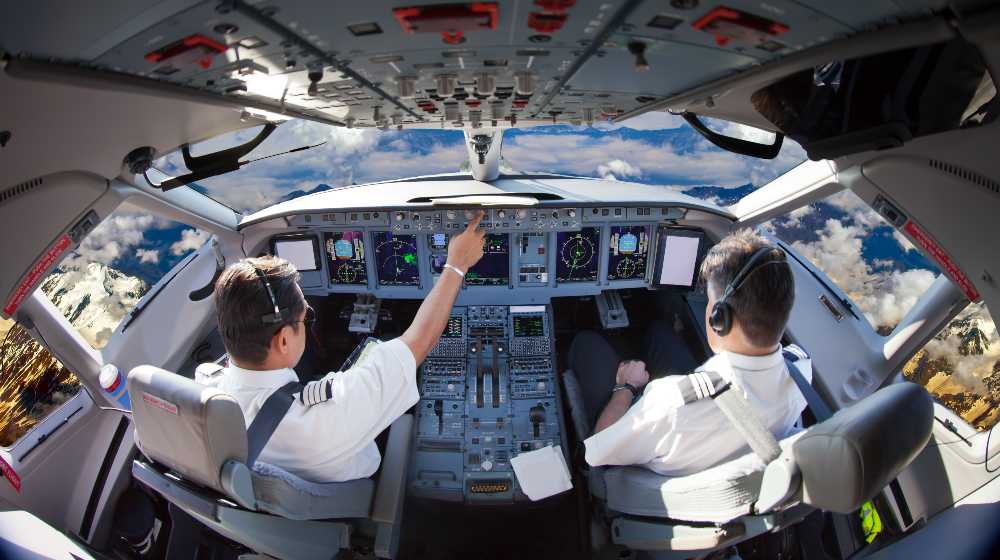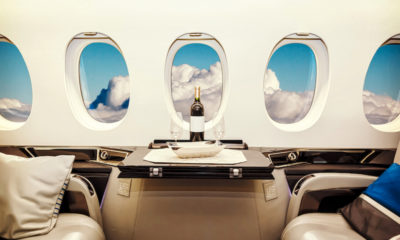5G Technology
Boeing and Airbus Warn Over 5G Technology Safety Concerns

Executives of aircraft manufacturers Boeing and Airbus are expressing concerns over 5G technology. They feared that the new broadband spectrum could interfere with aircraft electronics.
US telecoms AT&T and Verizon are set to launch their 5G-technology wireless networks by the 5th of January.
RELATED: Boeing Loses More Plane Orders, CEO Says Major Airline Will Go Bankrupt
5G Technology Could Interfere In Aircraft Communications

CEOs of Boeing and Airbus sent a letter to Transportation Secretary Pete Buttigieg. They warned about 5G technology's negative impact.
Want to see the full article?
Click here to read the full article on breakingnewsalerts.com
In particular, they warned about the “enormous negative impact on the aviation industry”. Previously, aviation officials feared that 5G-technology could interfere with aircraft electronics.
Dave Calhoun and Jeffrey Knittel, CEOs of Boeing and Airbus, signed the letter. They said that 5G interference can compromise the operations of their planes.
5G Technology Might Cause Interference
The letter pointed to research conducted by Airlines for America. Thankfully, the Federal Aviation Administration (FAA) did not roll out 5G in 2019.
Otherwise, they would have dealt with delays for 345,000 passengers and 5,400 cargo flights. In particular, the aviation industry takes issue with potential interference. 5G-technology can disrupt highly sensitive aircraft equipment. This includes radio altitude meters and other devices.
Both the airline industry and the FAA already raised concerns about 5G-technology. They feared interference with sensitive aircraft equipment.
Right now, they are working with the rest of the industry to understand 5G-technology better. In fact, Airbus and Boeing submitted an Aviation Safety Proposal. This is now for consideration by the US Department of Transportation.
FAA Issues Airworthiness Directives
Earlier this month, the FAA issued an airworthiness directive to the airline industry. It warned that 5G technology interference could result in flight diversions. The agency promised to provide more information before the 5 January 5G rollout date.
However, the January schedule is already a concession of sorts from At&T and Verizon. The companies delayed a planned rollout in November of their C-band wireless service that featured 5G technology.
They agreed to move the date to January 5. They also adopted precautionary measures to limit device interference.
5G Technology Measures Not Enough
Meanwhile, aviation industry groups insist that these measures are not enough. Boeing and Airbus jointly said they offered a counterproposal.
Providers shouldn’t roll out 5G technology immediately across all areas. Instead, they proposed limiting cellular transmissions around airports and other sensitive areas.
In addition, United Airlines CEO Scott Kirby said the FAA's 5G directives bars the use of radio altitude meters in 40 of the country’s largest airports.
In addition, the US wireless industry representative CTIA insists that 5G technology is safe. It also accused the airline industry of spreading fear as they twist the facts.
“A delay will cause real harm. Pushing back deployment one year would subtract $50bn in economic growth,” CTIA said. According to CTIA CEO Meredith Attwell Baker, delaying the rollout is also bad timing, given the country’s recovery efforts.
Watch the Reuters video reporting that Boeing, Airbus urge delay to 5G internet rollout:
What do you think of 5G technology? Do you also agree with the airline industry that it poses risks and can interfere with aircraft equipment? Or, are you siding with the telecoms industry in that 5G is safe?
Let us know what you think. Share your thoughts about 5G technology below in the comments section.







